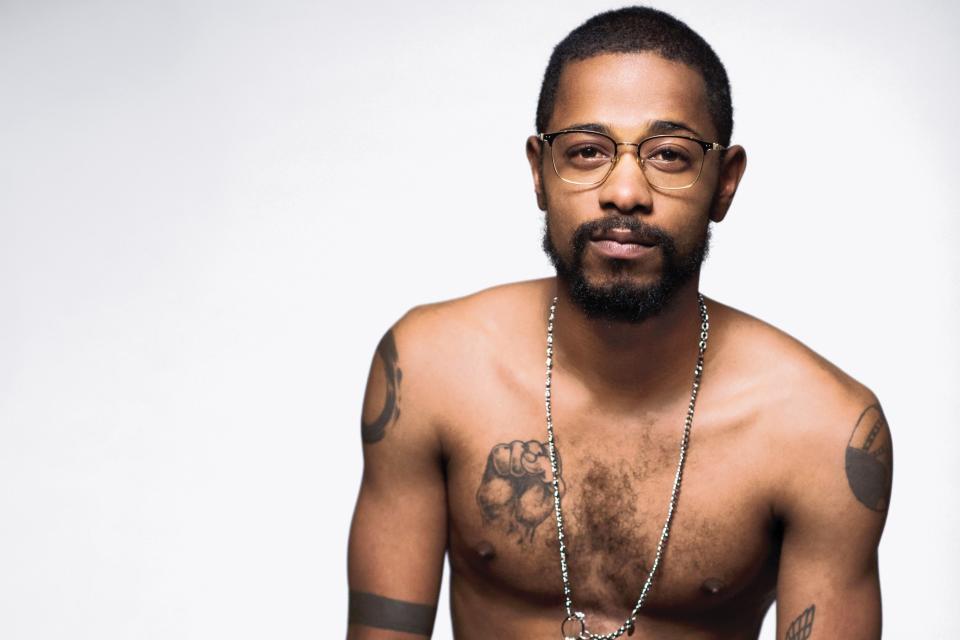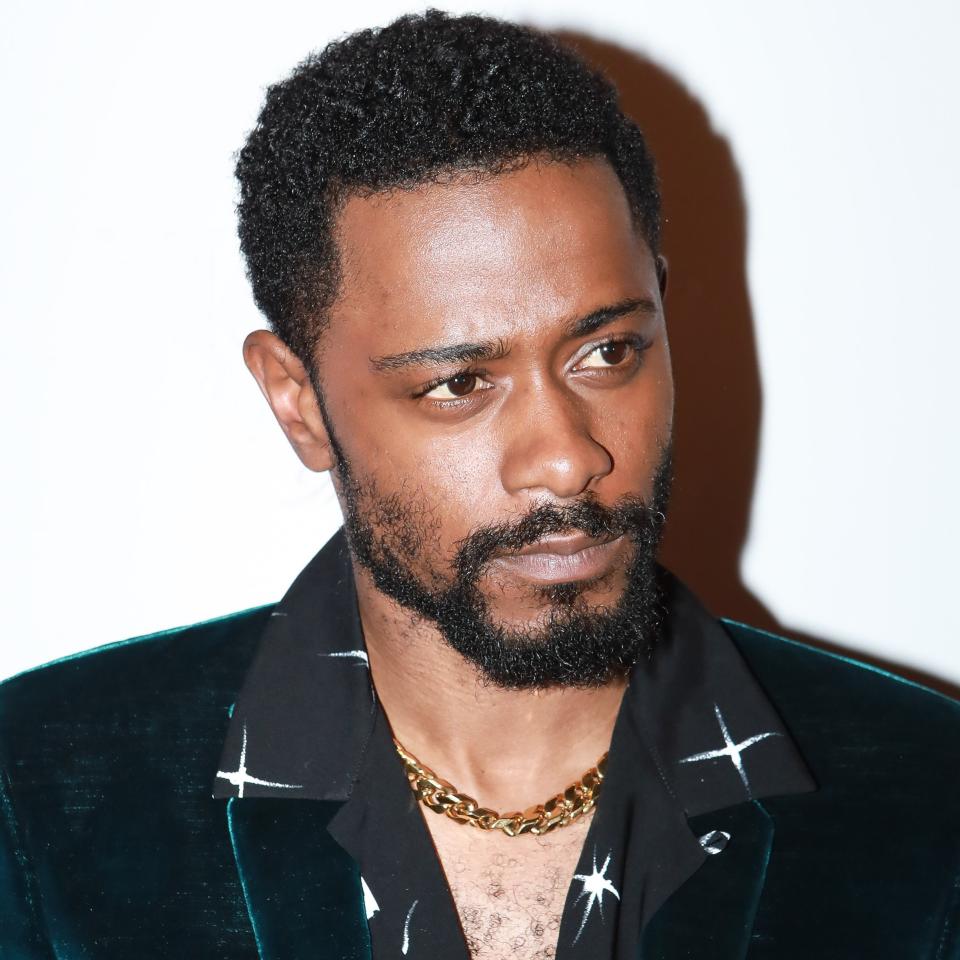Lakeith Stanfield Is a New Kind of Leading Man
If there’s one moment that sums up Lakeith Stanfield’s abilities, I’d argue it’s this: Halfway through season two of Atlanta, his character, Darius, attends a party at Drake’s mansion (just go with it) and has a stoned conversation with a woman about the nature of illusion. Sitting in the middle of a pool, tossing an apple in the air, he cites Swedish philosopher Bostrom’s simulation argument, which suggests reality is computer generated. It’s weird—like, super weird—but something about the way he delivers the complicated dialogue has you nodding along with every word.
Stanfield, 27, first signed on to the FX series because he thought it might provide “some deeper insight into the Atlanta music scene.” But the surreal comedy, which stars Donald Glover as Earn Marks, the manager and cousin of a rapper named Paper Boi (Brian Tyree Henry), and Stanfield as their offbeat friend, has become a genre-defying treatise on all aspects of black life. “I began to realize it was a story about human beings, and coming to understand one’s self and place in the world,” Stanfield says. “Essentially what the show is saying is that being black is being human. I’m a human first—in black circumstances.”
The day we talk, his circumstances have led him to Good Morning America, where a stylist (“some dude named Adam”) helped him pull together his outfit (“a nineties-style button-up, corduroy pants, Christmas socks, and Saint Laurent shoes”). The experience has led him to ponder those absurd moments of fame. “When it becomes about me, it feels a bit strange,” he says. “It feels like the focus is wrong. And sometimes it makes me feel like I want to get out of there.”
In a world everyone is trying to break into, Stanfield may seem like an outlier, but “that’s something Hollywood’s trying to put on me,” he says. “I’ve never felt weird.” Still, he admits he’s a bit of a loner, even more so now than when he was a kid who wrote poetry and had a tree for a friend while growing up in Riverside, California. “I was always a people watcher and thought people were really peculiar,” he says. “I’d start fights because I thought it was strange that people could be bothered by so many things.”
His plan was to be an actor, but not on television. “TV to me seemed more fake. I guess ’cause of all the commercials,” Stanfield says. “I liked movies because they were like short stories.” He managed to hustle his way into film auditions by sending out résumés padded with fake productions—“I figured once they let me on set, they would figure out that I’m good enough”—and first captivated audiences as a troubled teen in 2013’s Short Term 12 and then as a terrorized body-snatch victim in last year’s Oscar-winning Get Out.

Television became more appealing once he met Glover at a Hollywood party, where the Atlanta creator pitched him the series on the spot. “When he saw me, he was like, ‘Hey, what’s up? I got this role you might be good for,’ and handed over the script. I think he was out looking for his Darius. I was just like, Here’s an opportunity. And it turned out to be cool.”
Cool is an understatement. Stanfield now finds himself at the center of an overdue small-screen black renaissance that includes everything from Black-ish to Insecure and The Chi while also building a career as a movie star. In July he earned raves as a struggling telemarketer in Sorry to Bother You; next month he’ll play an NSA expert in the thriller The Girl in the Spider’s Web.
This career versatility is more gut instinct than game plan. “I’m attracted to stories that move me,” he says. “Sometimes those are surreal, but more often they’re just stories that deal with characters who have to overcome challenges and get through and adapt.” I ask whether he’s worried that the trappings of fame might somehow change who he is or how he sees the world. “No,” he says quickly.
“You’re solid?” I offer.
“Solid as a rock.”
Atlanta returns to FX next year. Clover Hope is a writer in Brooklyn and an editor at Jezebel.


